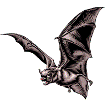Museum, University of Nebraska State

University of Nebraska State Museum: Mammalogy Papers
Document Type
Article
Date of this Version
10-11-2019
Citation
Special Publications / Museum of Texas Tech University, number 71, October 11, 2019, pages 337-377. From Field to Laboratory: A Memorial Volume in Honor of Robert J. Baker.
Abstract
Several mechanisms have been shown to influence species richness among island ecosystems, yet most studies limit their focus to a few predictor variables. The objective of this study is to investigate variation in Chiropteran richness across islands in the Caribbean Basin with an extensive set of predictor variables. Using recent faunal surveys, the most contemporary list of bat species per island was complied. Data were collected on 17 predictor variables, which summarized five general island characteristics including island area, isolation, habitat diversity, human impact, and climate. An information-theoretic approach was used by fitting alternative candidate models to determine which variable(s) best predicted bat species richness. Island area and timing of human colonization were most important when islands located on the continental shelf were included in the analysis. When these islands were removed, measures of habitat diversity and climate became the most important predictors for all island groups except the Bahamas, where no variables predicted species richness better than chance. The results of this analysis highlight the importance of island area, habitat heterogeneity, and climate in determining the bat species richness on Caribbean islands.
Included in
Biodiversity Commons, Other Ecology and Evolutionary Biology Commons, Terrestrial and Aquatic Ecology Commons, Zoology Commons


Comments
Copyright 2019, the authors. Used by permission.